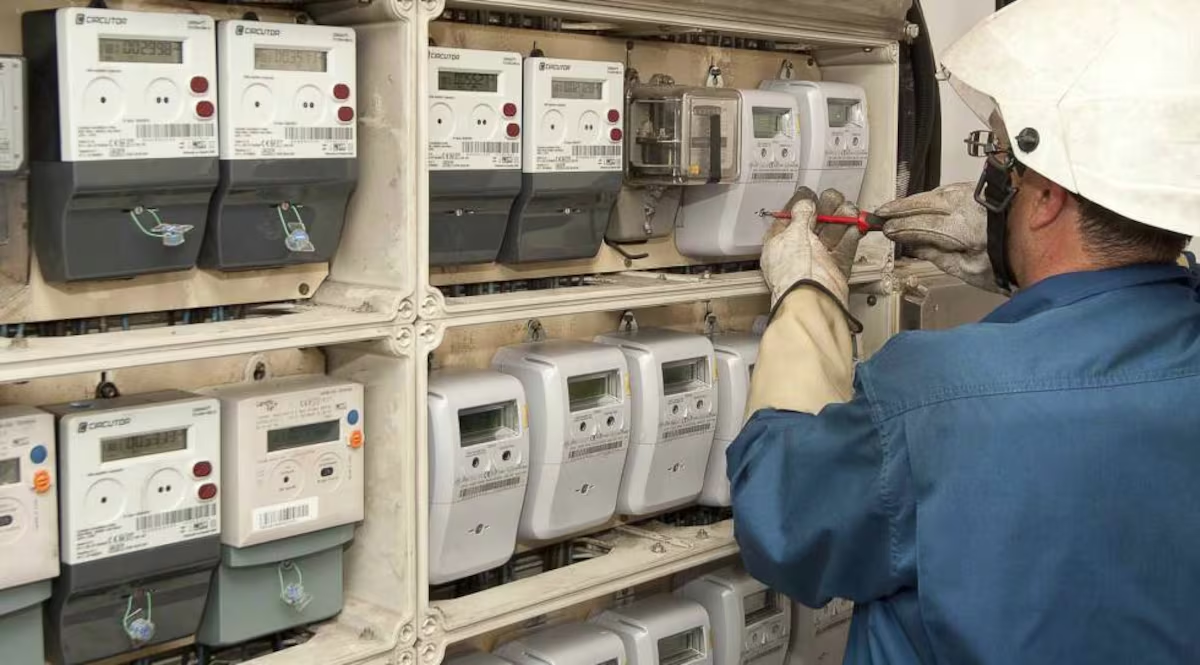
Justice has given a setback to electricity companies. Companies cannot issue invoices for electricity consumption to their customers without first demonstrating – with objective and verifiable evidence – that there has been manipulation of the meter or a real irregularity in the measurement. The matter was resolved by the Court of First Instance Number 1 of Santander, which imposed Eni Plenitude Iberia return 2,500 euros as a re-invoicing to a company for an alleged alteration of the meter which was never proven. You will also have to pay legal interest along with legal costs. The sentence is final and does not admit of appeal.
According to the established facts of the sentence (which you can consult here), issued last September, a technician from the A I-de Redes Eléctricas Inteligentes SAU (electricity distribution company) went to the offices of the company concerned to check the electricity meter. During the inspection the employee did not sign the relevant report. The presence of the plant’s workers as witnesses was not even required, which prevented them from bringing charges. Furthermore, the visit was carried out unannounced, so the contract holder was unable to attend the review.
The inspector drew up a report stating that tampering with the meter had been detected. However, according to the court ruling, the document did not explain on what evidence this conclusion was based, but only indicated that “manipulation of the measuring or control equipment had occurred to prevent its correct functioning”.
Based on this assessment, Eni Plenitude Iberia issued a re-invoicing of 2,500 euros, an amount seven times higher than that calculated by the distributor (361 euros). The affected customer went to court claiming that the inspection was irregular and without guarantees. He also argued that the bill had been calculated without specifying when the alleged alteration would occur and questioned whether the technician had the authority to certify a tampering with the meter.
No conclusive evidence
The technician stated at trial that he did not remember this specific case or the reason for the re-examination. The worker explained that he simply followed the company’s orders, that is, to go to the metering room, check the supply without notifying the customer “because it wasn’t necessary” and take some photographs before and after the check.
The judge who decided the case, Javier Gomez Hernandezconcludes that the re-invoicing is abusive because tampering with the meter cannot be demonstrated when the only evidence available is a report prepared by the distribution company and without the intervention of the customer. “He could hardly have provided evidence that could discredit the conclusion of the manipulation carried out by the inspector, without knowing the evidence that had led to that conclusion”, reads the sentence.
According to the ruling, the absence of a signed report, the lack of notice and the lack of material evidence or conclusive photographs prevent the examination valid inspection. Consequently, Judge Gómez Hernández underlines, “the reality of the manipulation cannot be considered proven and its content cannot be considered effective and the conclusion of the manipulation is indisputable”.
Likewise, the ruling underlines that the re-invoicing of 2,500 euros is considered improper and unjustified since there is no evidence regarding the moment in which the alleged manipulation occurred.
Responsibility
The company Eni Plenitude Iberia defended itself by arguing that it should not assume any responsibility, since its role is limited to selling energy to customers using consumption data provided by distribution companies. He claimed that he did not participate in the meter inspection, nor did he have the power to check whether a meter has anomalies, tasks that fall to distributors. He therefore believes that responsibility for the alleged manipulation and the cost of re-invoicing should fall at the distribution companywho was the one who performed the review and prepared the report on which the customer charge was based.
The judge disagrees: “the defendant’s accusations regarding her lack of responsibility cannot stand,” reads the ruling. As a result, it is the marketing company that has to deal with the refund. As explained Diana Barrosolawyer from Legalion Abogados who handled the case, the ruling “makes it very clear that the marketing company, which is the one that issues us the invoice, will still be required to return the amount unduly paid regardless of who checked the meter, which is always a controversial point in these cases”.
The magistrate recalled that, although the distribution company is responsible for carrying out the technical checks, it is the marketing company that maintains the contractual relationship with the customer and, therefore, must respond to the complaint. “If it is true that it is the distributor who reads the consumption and controls the equipment, this does not mean that the user cannot take action against the distributor for incorrect billing, even if the data on which it is based is provided by the distributor”, he concludes.
For all this, the marketing company will have to return the 2,500 euros to the customer.







